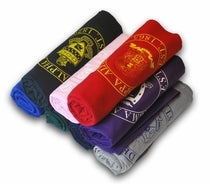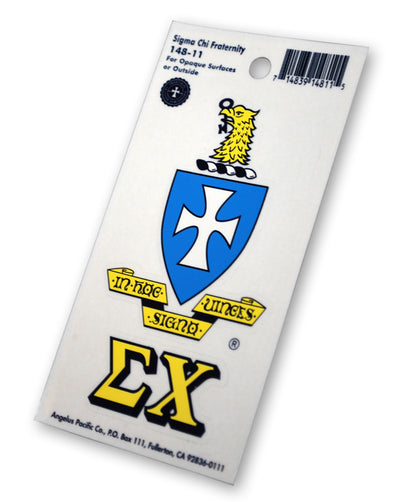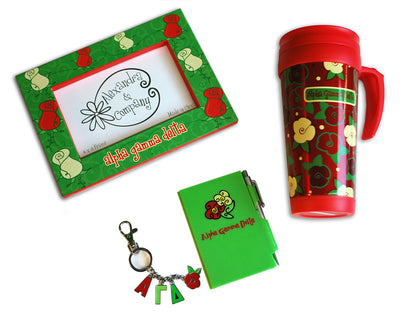What Does Dress For Success Mean? A Graduate's Guide to Professionalism
Professional attire can be difficult to figure out, as it has changed over the years. Some organizations view the traditional suit and tie or suit jacket and skirt as professional attire. For some companies and in certain situations, work attire is jeans and a T-shirt.
This confusing mix of professional attire can occur in a single office space. Part of it is due to personal style, but a large part of it is based on one factor: who's meeting clients today and who isn't.
So what does dress for success mean? If you are just finishing college or a graduate, here are some tips to dressing for success.
Over-Dressing Is Safer Than Under-Dressing
It's a standard piece of advice, and it will rarely steer you wrong. Professional business attire may be out of place for the client's internal employees, but if you're a guest going in for an interview or visiting a client site, you should opt for dressier rather than less dressy.
What you wear is part of the first impression everyone receives from your firm, and looking professional always helps. It's also true that you'll always feel more comfortable if you're a bit over-dressed than if you're under dressed. Think about showing up in jeans and sitting around a table full of suits. It's cringe-worthy, right? As a rule, feel safe sticking to what you would wear to an interview. After all, every meeting with a client is a new opportunity for them to renew or cancel their agreement with you. Why give them a reason with your unprofessional attire?
Prepare for Surprise Client-Facing Meetings
Not all client-facing meetings are actually face-to-face. Video conferencing and Skype calls are increasingly common in the business world, so you must be ready to look professional at a moment's notice.
That doesn't mean you have to keep wearing a suit every day of the work week.
But it does mean you should maintain a baseline that doesn't dip completely into weekend casual.A good backup is to always have a blazer in the office or your car. Throwing a sports jacket over anything, even a T-shirt, instantly makes it look more professional. It's also a commonly accepted happy medium for more formal business occasions, and you can find chief executive officers in every industry adopting the look.
Looking the part for any job is vital to your success. Taking care of your outward appearance will show your employer and your clients that you have what it takes to get the job done.
Dress to Impress
This advice was probably beaten into your head throughout high school and college, but it's the truth. Nobody is going to take you seriously in the office if you walk in looking like you did at last night's party at the club.
Separate your career wardrobe from your lifestyle wardrobe in your closet, if that helps. It'll look a lot better not only in your closet, but on you as well.
Another tip is to observe what your co-workers are wearing; you don't want to completely emulate them, but getting a feel of the general style will help you look like you are part of the team.
Here's another tip you've probably heard before. Dress for the job you want. If your boss wears a suit every day, and you're gunning for a similar position, do the same.
Less Is More
When it comes time to step in front of your vanity and choose your beauty essentials for the day, think "less is more." Beauty experts from Marie Claire suggest that subtle makeup is better than "look at me” makeup. This isn't to say that you can't rock a red lip; it simply means to wear it properly. If you want to draw attention to the red lip, keep everything else neutral and soft. If you're going for dramatic eyes, go ahead and wear that dark eyeliner, but keep the lips and cheeks soft.
Hair
Your hair is also important to keep in mind. Office professionals often wear their hair up in ponytails or buns, as to keep it out of their face, therefore eliminating as many distractions as possible. You don't necessarily have to do this, but do work to keep your hair out of your face, so it's not a distraction during business meetings. Spraying a light layer of hairspray will keep your locks in place all day.
Confidence Is Key
After your clothes are on and your hair and makeup are done, what's left? Confidence. This characteristic will not only bring more positivity to the workplace, but it will boost your self-esteem and your career.
Who Do You Want to Attract?
The way you dress is, to an extent, part of the marketing of the firm you represent. Tailor your wardrobe to accommodate the taste of your most desirable client, while taking into account that you don't want to intimidate any rising clients by over-dressing.
You don't want to offend any clients with clothing that is too tight, too low-cut or wrinkled. Also, follow your management's dress code if there is one. You might also consider spending some money on a clothing coach to establish the colors that you look best in. If you don't have the budget for this, ask a close friend or family member to help.
Business Casual
If the dress code is business casual, clean lines with comfortable slacks and skirts occasionally accompanied by blazers are great choices. Pay special attention to the correct fit.
Shoes should be gleaming, although more casual shoes are sometimes allowed. Build a mix and match wardrobe based on good fabrics, neutral tones and classic lines.
Color can come from a closet full of well-made blouses, sweaters, vests, scarves and ties that will please the eye. Few people look good in cheap clothing. Buy two or three items each season. Buy good items that will last for years instead of splurging each year to accommodate fads.
Accessories and Jewelry
Accessories and jewelry can dress an outfit up or down. An understated business blazer is an excellent background for a good broach or expensive cufflinks to impress that prospective client.
When Jeans are Allowed
Some modern firms who cater to small business may allow or encourage jeans in a more casual environment. When jeans are allowed, that doesn't necessarily mean that you can throw away your high heels or your tie. For accounting environments, err on the side of conservatism. If certain days are reserved for casual wear, make sure you're wearing jeans only on those days.
What Does Dress for Success Mean
For an interview, never wear jeans, even if you know that the office dress is casual. Wearing business attire to a business interview shows respect to your prospective employer.
A good way to set yourself apart from the crowd, and to establish yourself as a professional, is to dress as though you worked for the best accounting firm in the state.
If you are asked if you have questions (and you will have questions, of course,) then ask if casual attire is permitted for the accounting personnel.
Are you looking for Greek merchandise or wondering what Greek life is like? Check out our blog for more information. And feel free to contact us anytime with questions.










